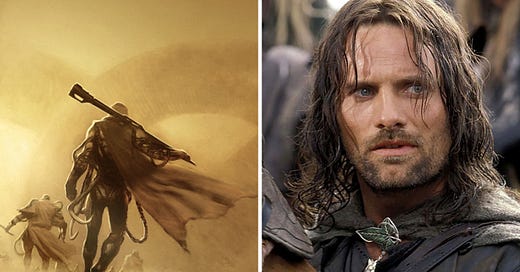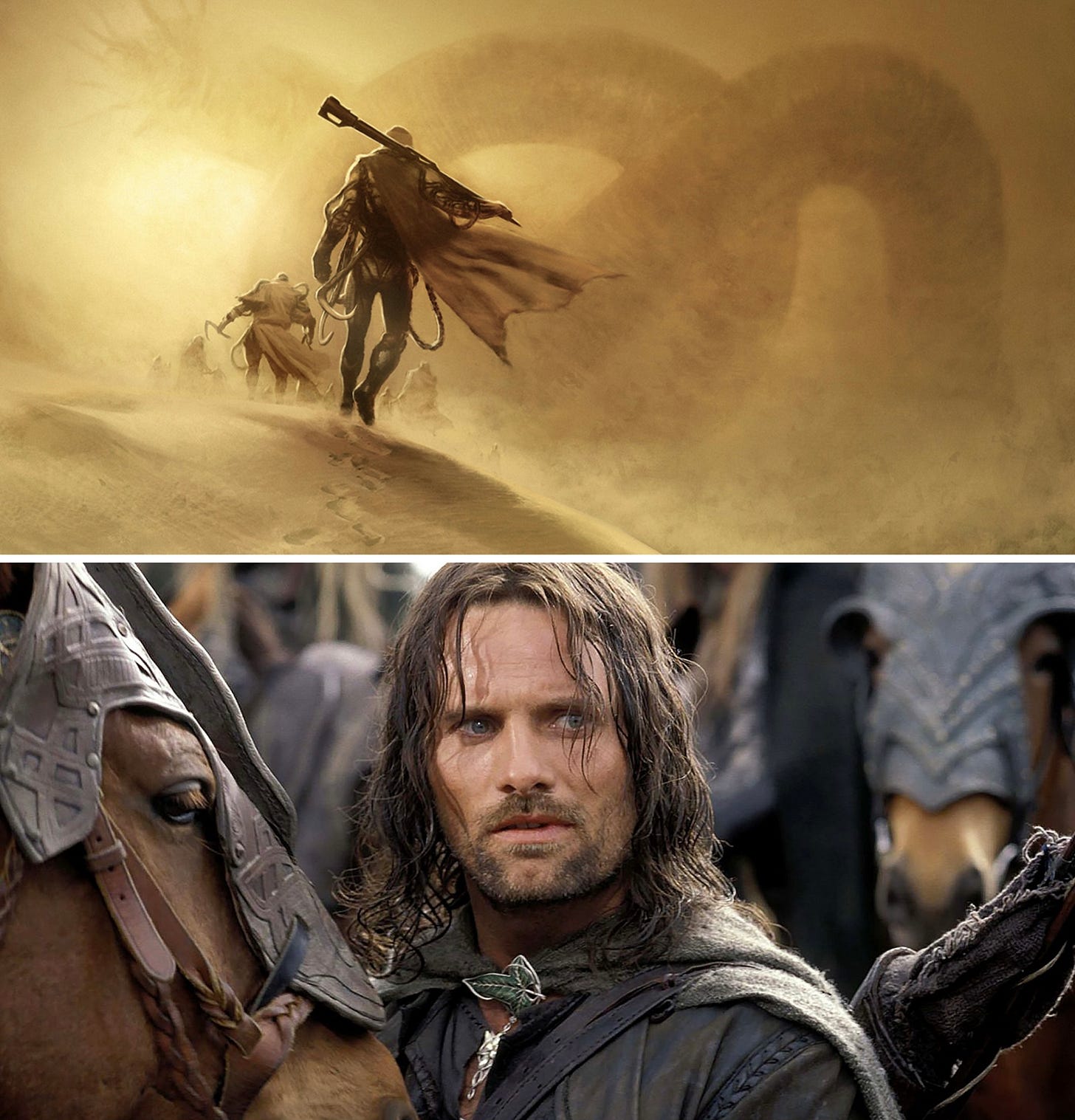J.R.R. Tolkien didn’t offer many harsh opinions about his contemporaries. But in an unsent letter, he made an exception — writing that he disliked Frank Herbert’s Dune “with some intensity.”
On the surface, it’s a puzzling statement. Dune is a sweeping myth of prophecy and power, a richly built world with its own languages, genealogies, and histories. In many regards, it’s a natural cousin of The Lord of the Rings — a saga of destiny and leadership set against the fall of civilizations.
Tolkien didn’t explain his intense dislike, but it’s clear that Dune represented something else entirely. It proposed a vision of morality that felt dangerous — a world in which might makes right, and moral clarity is sacrificed for pragmatic ends.
And this vision couldn’t be any more at odds with that of Tolkien’s masterpiece…
Keep reading with a 7-day free trial
Subscribe to The Culturist to keep reading this post and get 7 days of free access to the full post archives.





